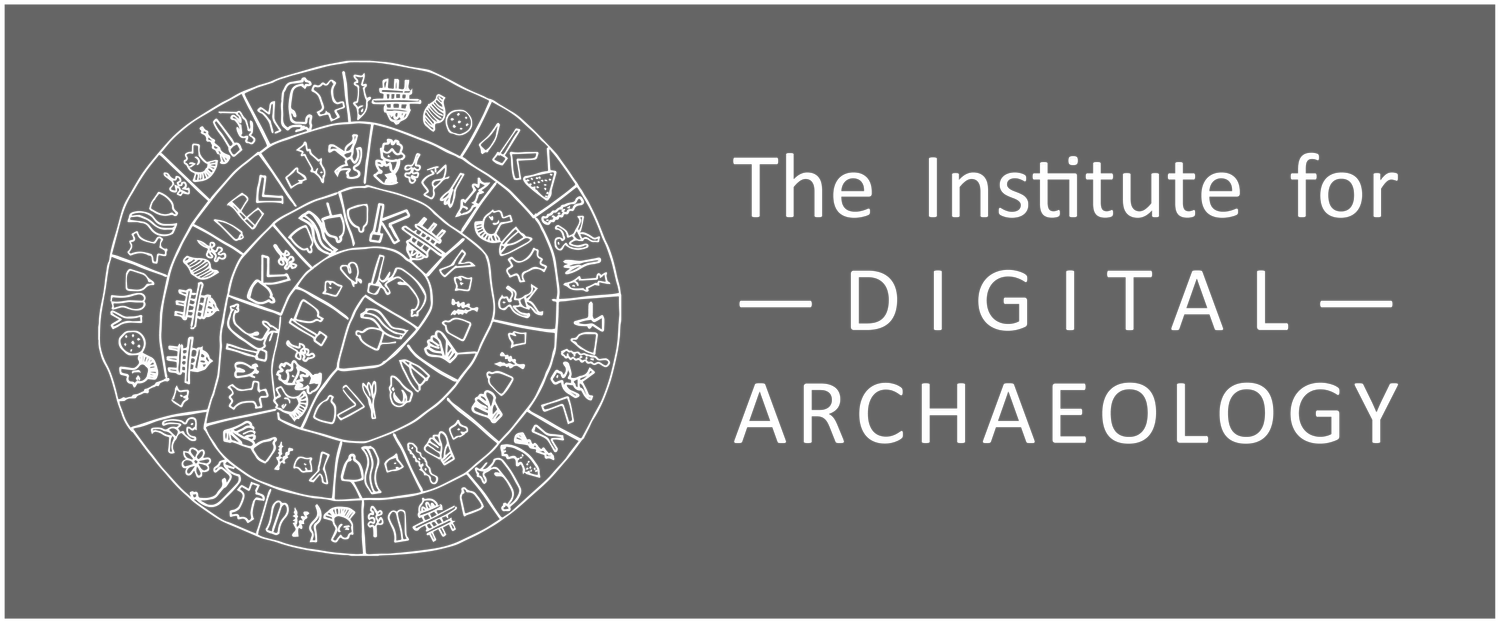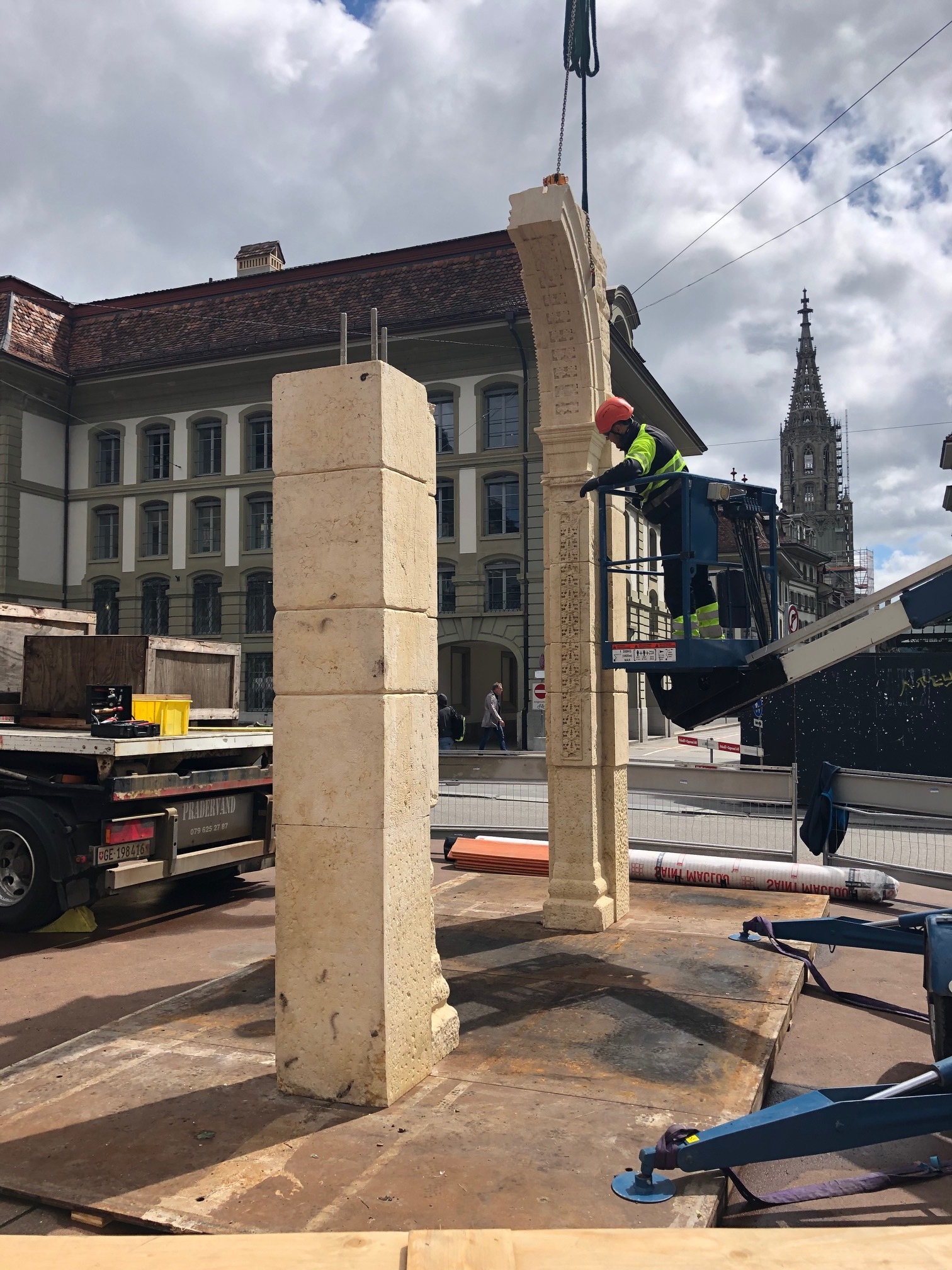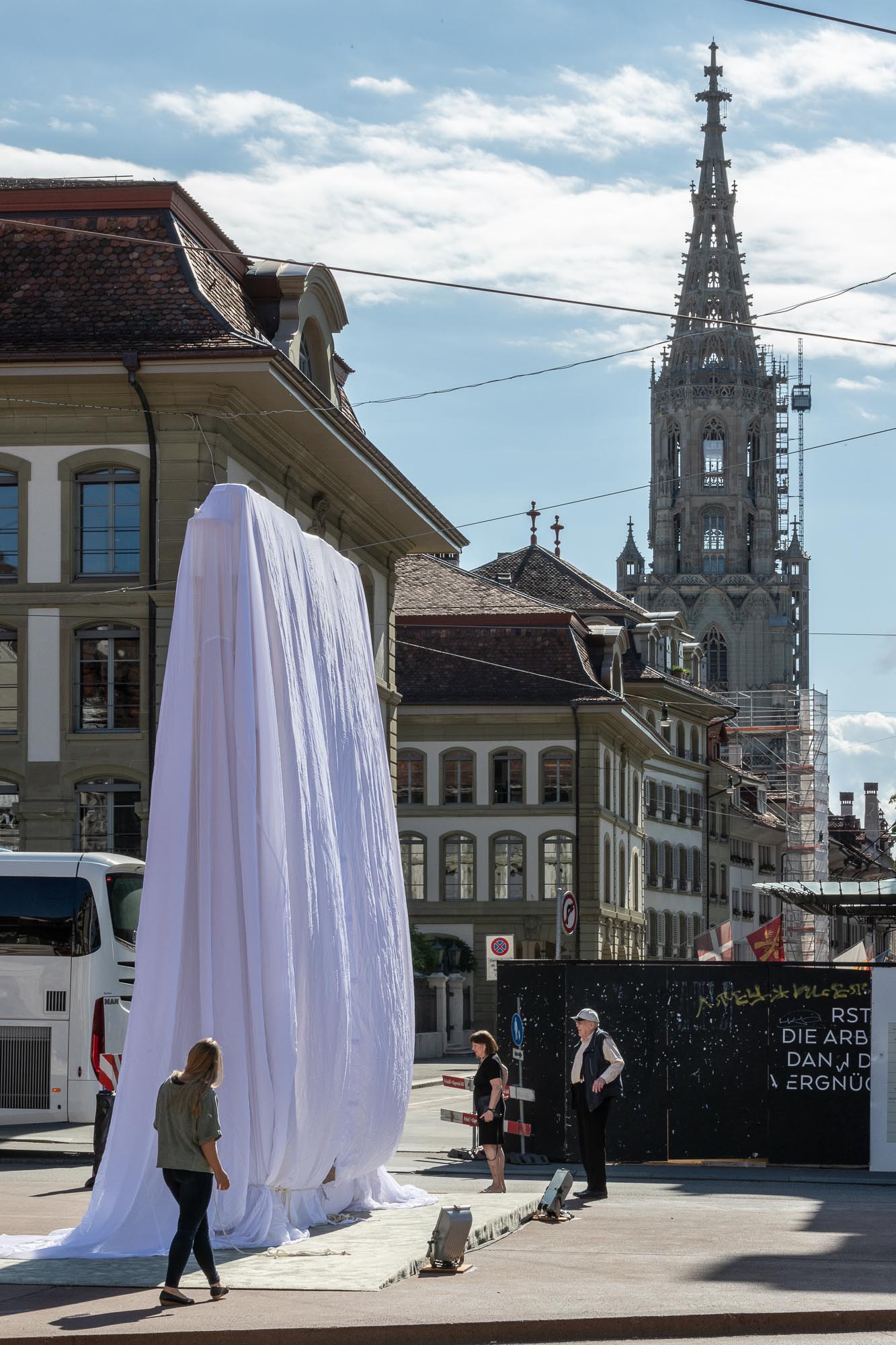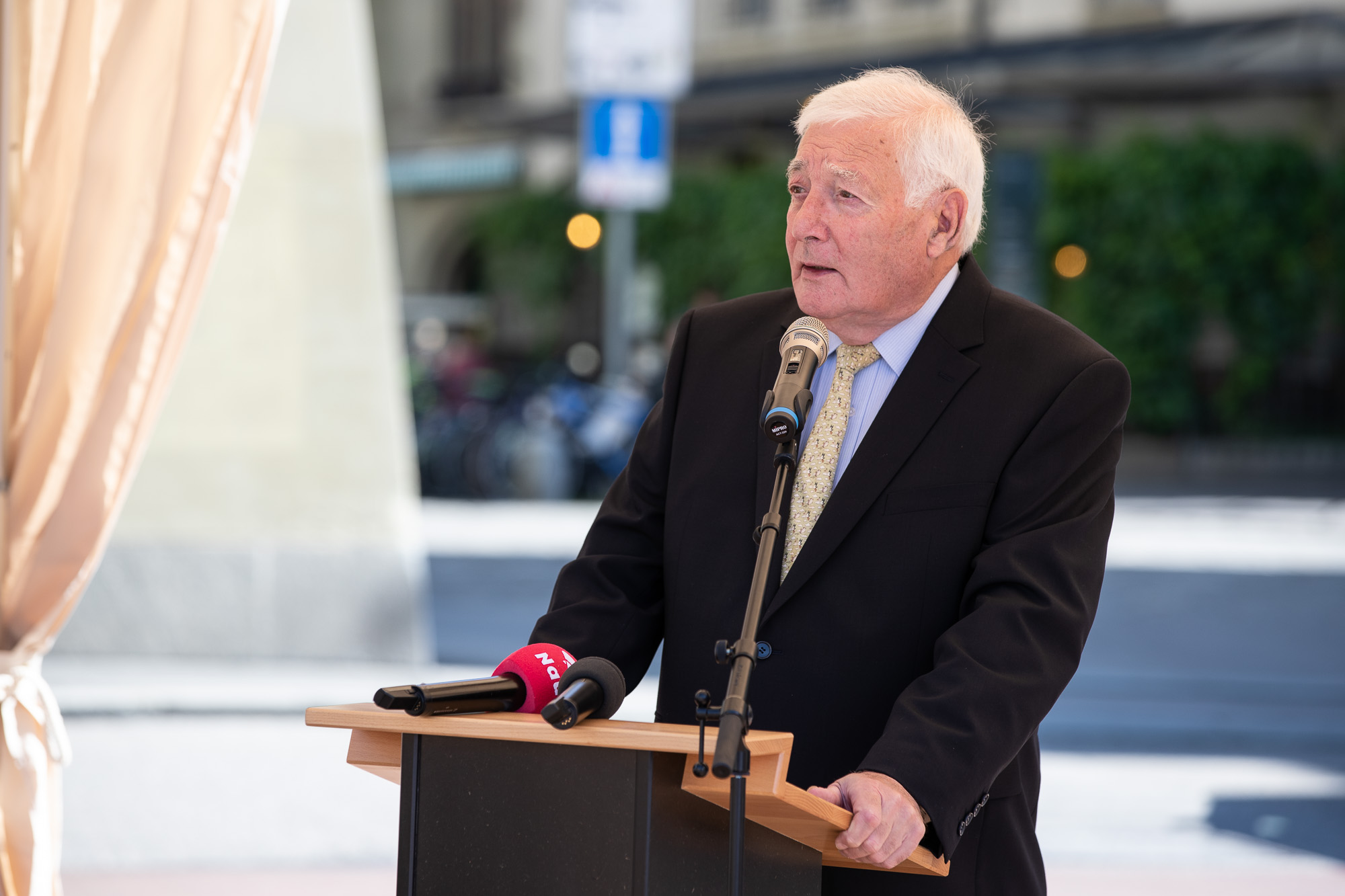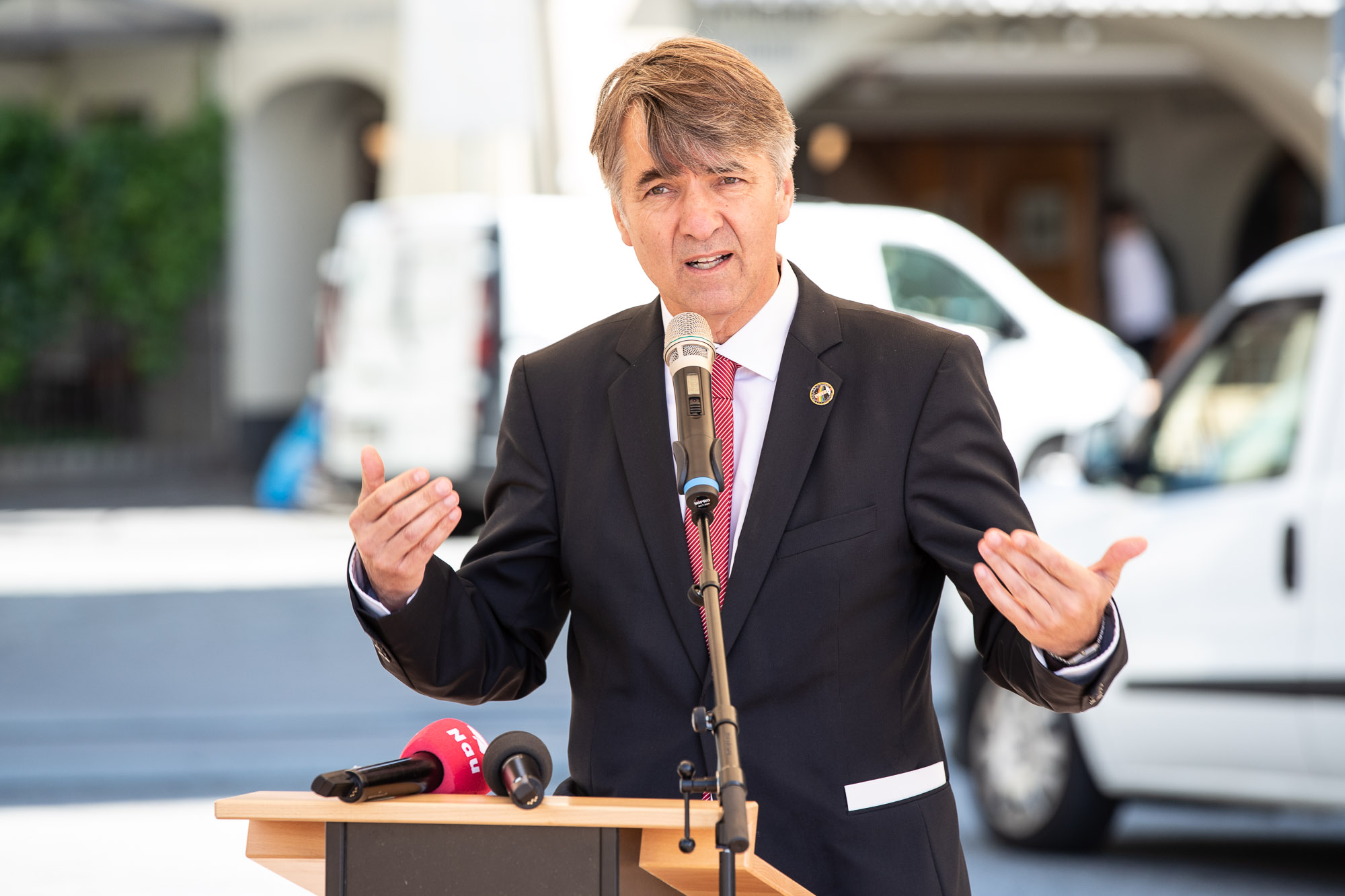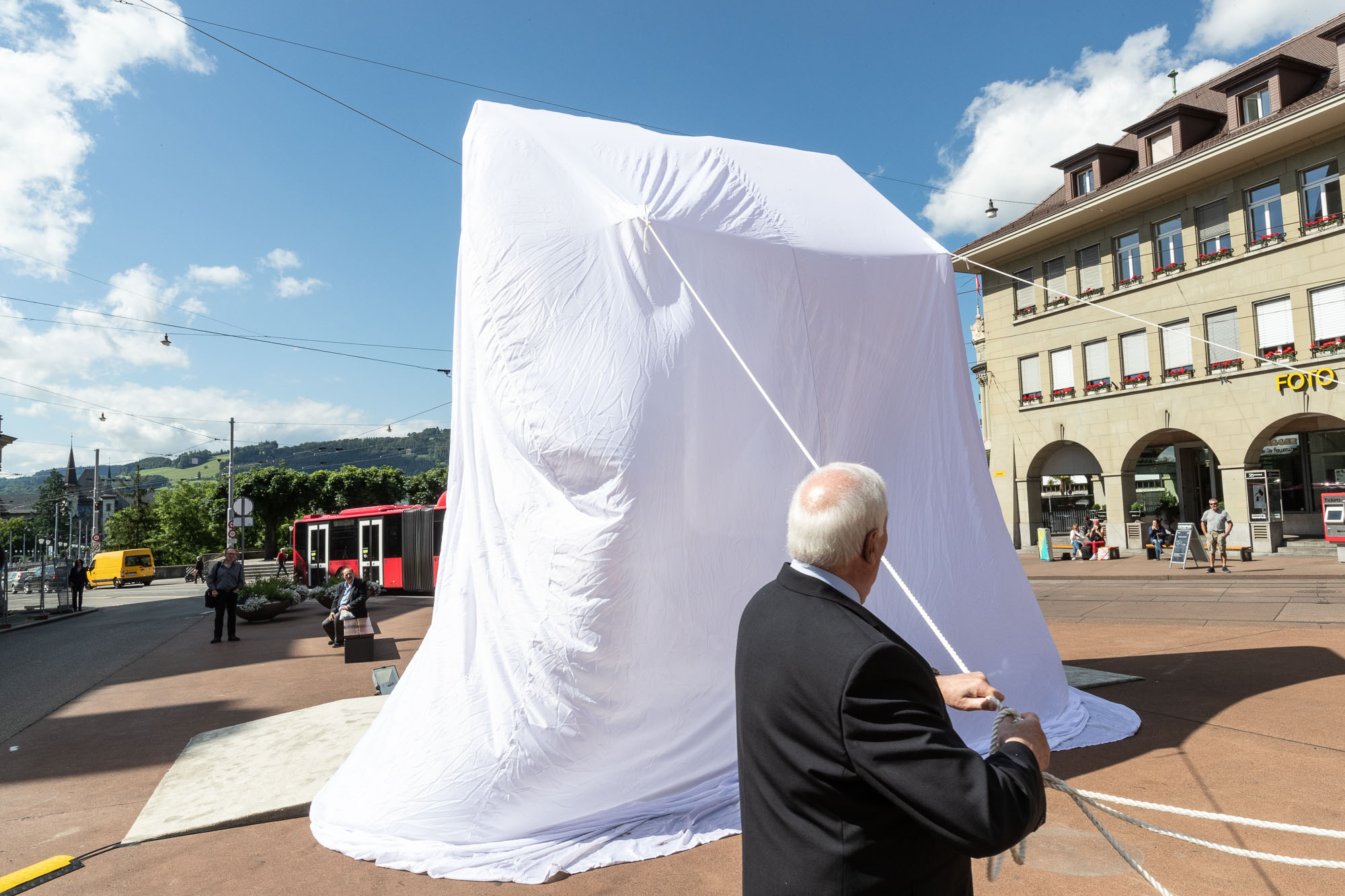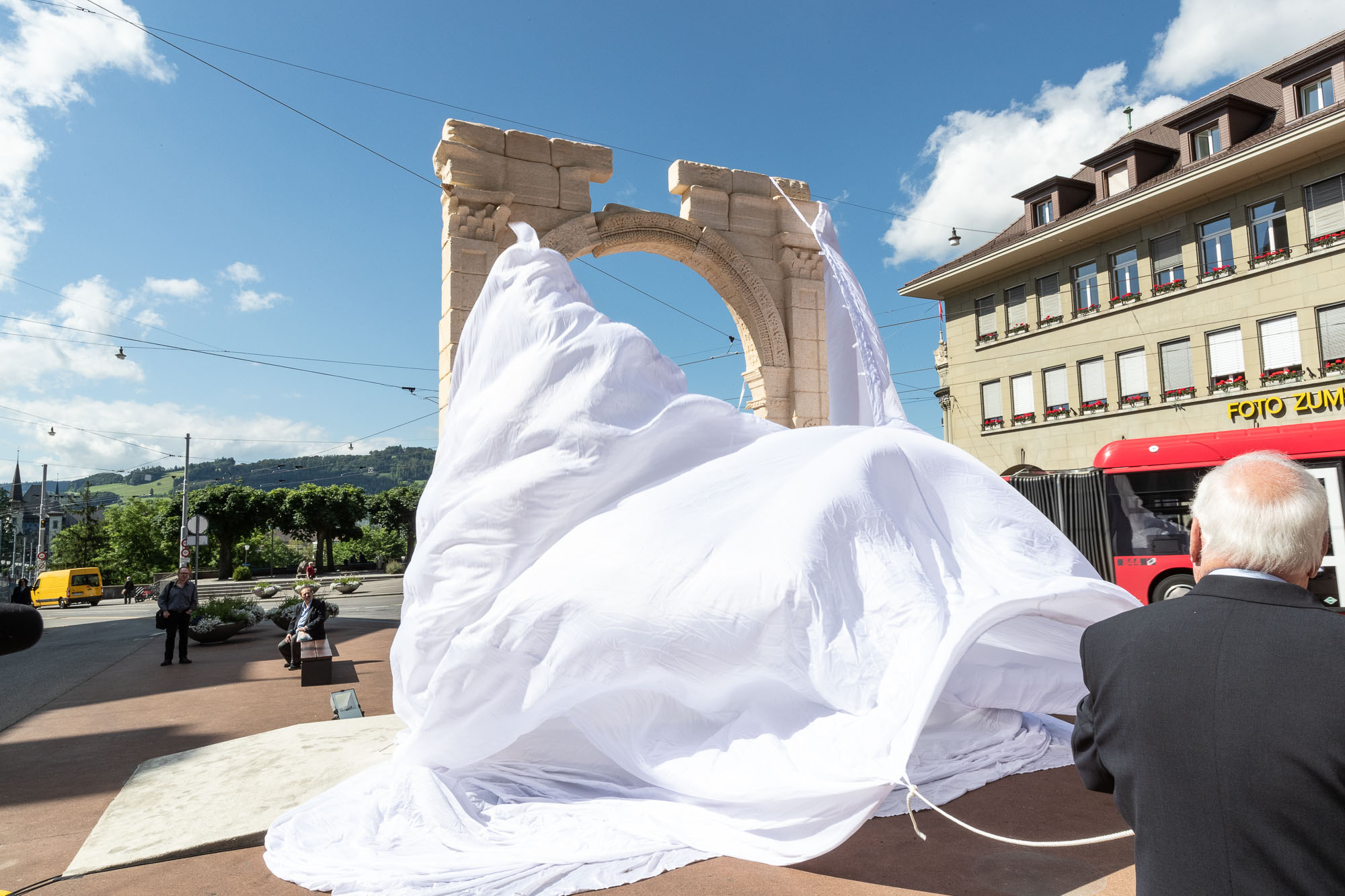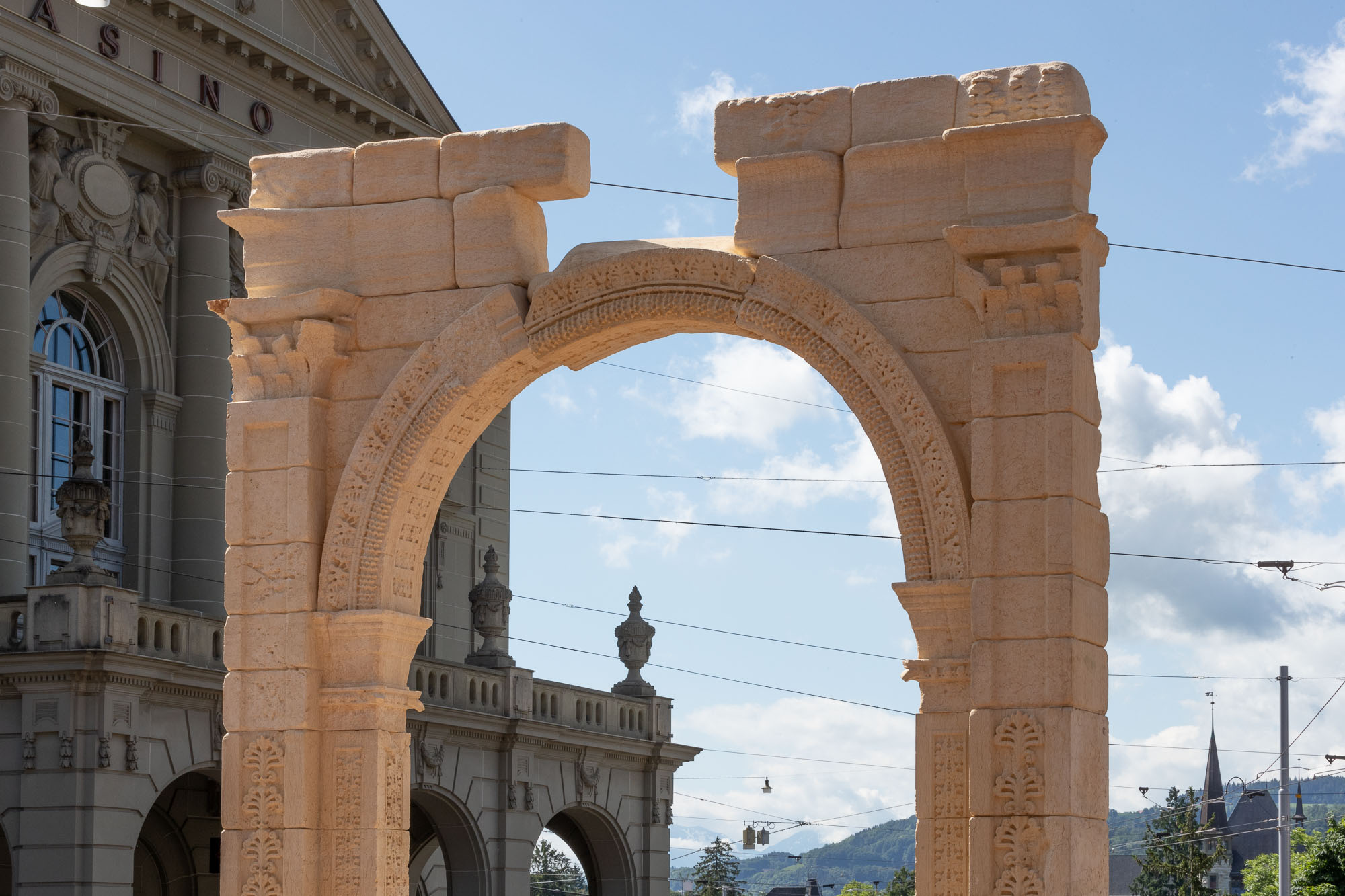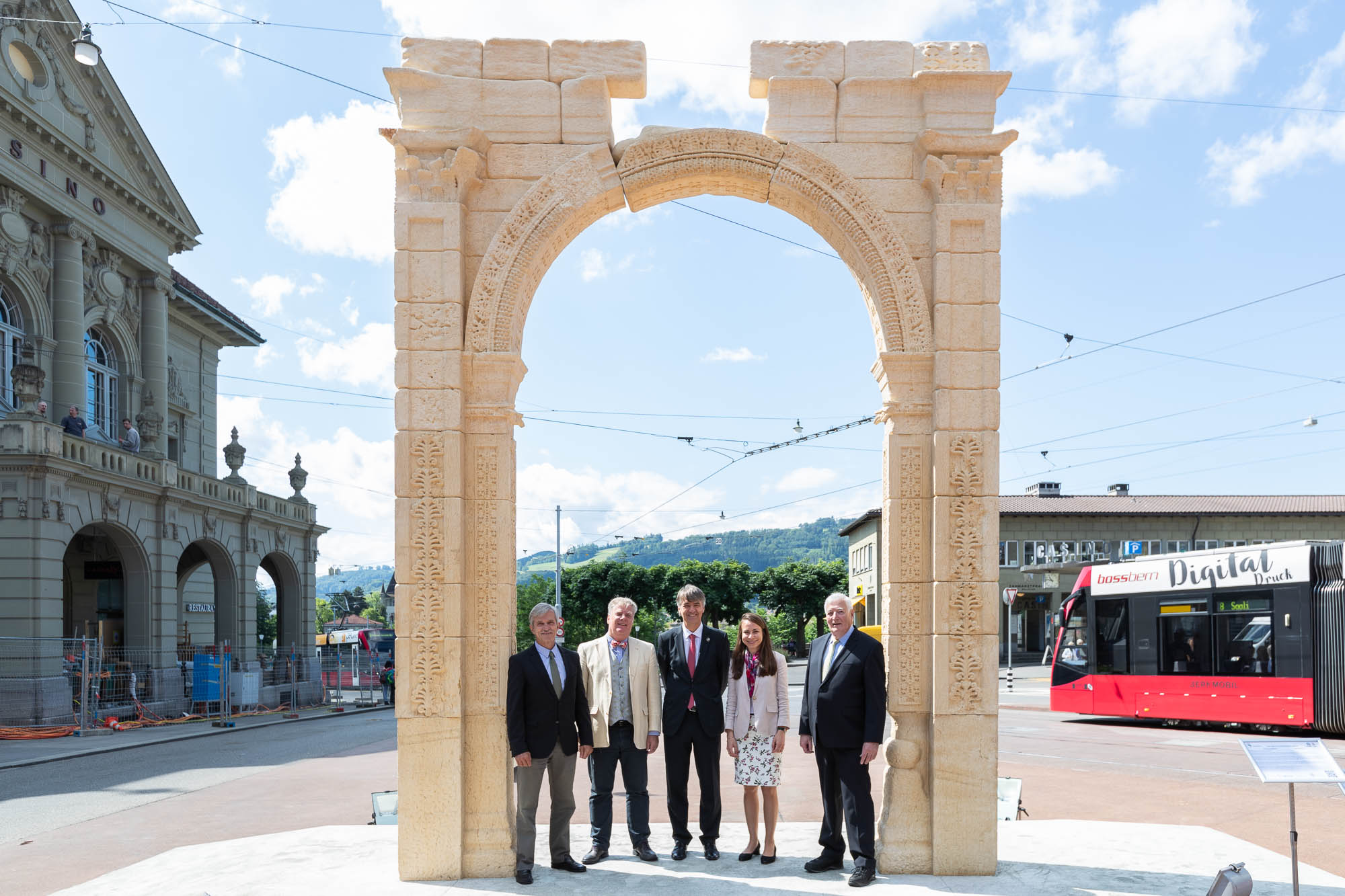Bern, Switzerland
June 12 - 24, 2019
Protecting Humanity’s Fragile Heritage
#70SwissUNESCO #archinberne
For human dignity, against ignorance — 70 years of Switzerland’s commitment to UNESCO
© GABRIEL DESIGN
Please check out the media coverage of the IDA's recent installation in the Swiss capital
© GABRIEL DESIGN
From 17th to 20th June 2019 in Bern, the Swiss Commission for UNESCO will celebrate its 70th anniversary. This anniversary corresponds to the accession of Switzerland to the United Nations Educational, Scientific and Cultural Organisation (UNESCO) in 1949. Five thematic conferences will be held in a marquee erected especially for this occasion on the Waisenhausplatz in Bern. In conjunction with this event, a large-scale replica of the Triumphal Arch of Palmyra, Syria, made by the Institute for Digital Archaeology (Oxford) will be unveiled on June 13th on Bern’s Casinoplatz.
Part of a UNESCO World Heritage property, just like the Clock Tower of the Old City of Bern, this monument — which today lies in ruins — symbolises the fragility of our humanity. The city of Berne, a signatory of the Geneva Declaration for cities united in solidarity for the protection of human rights and cultural heritage, is giving its full support to the organisation of this jubilee.
Knowledge is fundamental to the dignity of individuals and the prosperity of societies. Likewise, peace can only be achieved through the sharing of knowledge and mutual respect. This is the vision that led to the creation of UNESCO at the end of the Second World War — a vision for peace that Switzerland, in a spirit of multiculturalism, neutrality and social responsibility, adopted in 1949 by joining this multilateral organisation and establishing its own National Commission for UNESCO.
70 years on, significant progress has been made, but some challenges still remain, and new challenges have emerged. Illiteracy still affects more than 750 million people globally and 10% of the Swiss population. Less than 30% of researchers worldwide are women. Freedom of expression, artistic freedom, and the freedom to carry out research is under pressure as a result of oppressive security measures and ideologies. Existing measures for the protection of natural and cultural heritage are inadequate to hold off the threats they face from wanton destruction and declining biodiversity. The information revolution has made people more aware than ever of these challenges but also presents its own challenges: just as information now spreads at lightspeed around the world, so too does disinformation.
In the context of multilateral crisis, what actions can UNESCO and its partners undertake to help reduce inequalities and identify tensions in an increasingly interconnected world? How can Switzerland help to build bridges and restore a constructive dialogue, both globally and nationally, through collaborations in the fields of education, science, culture, and communication?
As part of Switzerland’s 70th anniversary celebrations at UNESCO, the Swiss Commission for UNESCO is organising five thematic conferences that will address different challenges, each from a particular angle. These conferences will be held between 18th and 20th June in a specially erected marquee on the Waisenhausplatz in Bern. Registration is available at www.unesco.ch. The marquee will also host an exhibition and open public exchange from 9.30 am to 7 pm on Tuesday June 18th and Wednesday June 19th and from 9.30 am to 2 pm on Thursday June 20th.
On 17th June, an official opening ceremony (by invitation) will be held at the Kornhauskeller in the presence of Federal Councilor Ignazio Cassis, Head of the Federal Department of Foreign Affairs, Mr Alec von Graffenried, Mayor of the City of Bern, and Mr Frimin Matoko, Assistant Director-General of UNESCO for Africa and External Relations.
Media interested in covering the unveiling of the Arch on 13th June at 10 am, the opening ceremony on 17th June at 6 pm, or the conferences from 18th to 20th June are invited to register via info@unesco.ch.
For further information: Jeanne Berthoud, +41 58 464 10 67
NB: A press release from the DFAE on the 70th anniversary of Switzerland's accession to UNESCO will be available on 17th June.
Arch of Palmyra (Syria)
By the 2nd century AD, Palmyra, a caravan city built on an oasis in Syria’s Tadmur desert, was a flourishing stopping-place on the main trade causeway between East and West. It was also a place of extraordinary multi-cultural prosperity. Considered to be of outstanding universal value to humanity, the site was inscribed on the UNESCO World Heritage List in 1980.
In 2015, many important structures in Palmyra were destroyed by the group calling themselves Islamic State. At that time, the Institute for Digital Archaeology was in the early stages of a cultural heritage protection project in collaboration with colleagues in the region. Plans were made to create a large-scale replica of one of the site’s most important monuments —Palmyra’s Triumphal Arch — using a combination of computer-based 3D rendering and pioneering 3D carving technology. The goal was to use the structure to send a message of peace and to draw attention to the need to preserve irreplaceable tangible and intangible cultural heritage.
Since its unveiling on London’s Trafalgar Square in April 2016, the Arch has been on public display around the world, most recently in Geneva in April 2019 in connection with the international conference “Protecting Cultural Property” dedicated to the 20th Anniversary of the 1999 Second Protocol to the 1954 Hague Convention. The structure is a symbol of the triumph of cooperation over conflict, optimism over despair, and human ingenuity over senseless destruction.
The installation of the Arch of Palmyra in Berne forms part of the celebrations surrounding the 70th anniversary of the Swiss Commission for UNESCO (the United Nations Organization for Education, Science, Culture and Communication). Since 1949, the Commission has been striving at the national level to advance UNESCO’s mission to achieve peace through the protection of heritage and to promote knowledge and knowledge-sharing. The city of Berne, a signatory of the Geneva Declaration “Human Rights and Cultural Heritage: committed cities working together”, gives its full support to the organization of this jubilee and is proud to underline its commitment to peacebuilding and protection of cultural heritage at risk through this initiative.
